The Depth of a Vision: A Closer Look at Drift by R. Eric McMaster
Exhibition review written by Celeste Viana, 2022 Summer Intern
McMaster at site visit to the Florida Keys for Drift
Most people rarely think about the backdrop of a film. They see the background merely as a minor character meant to stand behind the action of the protagonists. However, artist R. Eric McMaster could not disagree more. In his film Drift, musicians slowly drift apart from each other while playing a duet. A film on the ocean, one might think, could reasonably be filmed in any part of the world. Can someone truly tell the difference between the Pacific and Atlantic Ocean when there is only water? But McMaster divines importance in the specific part of the ocean where he films his work. To him, each part of the ocean has the same individuality as different human beings.
Cinematographer & Filmmaker Alex Markow filming in the Florida Keys for Drift.
For his film, McMaster scouted out a location right at the beginning of the Florida Keys. The Keys are a popular vacation destination, boasting sandy beaches, colorful coral reefs, and abundant marine life. However, behind this alluring facade lies a sense of doom, as this region is also heavily prone to damage from hurricanes and sea level rising. Drift simultaneously replicates the serenity of the Keys and the threats they face, thereby materializing the “personality” of the sea in a visual form.
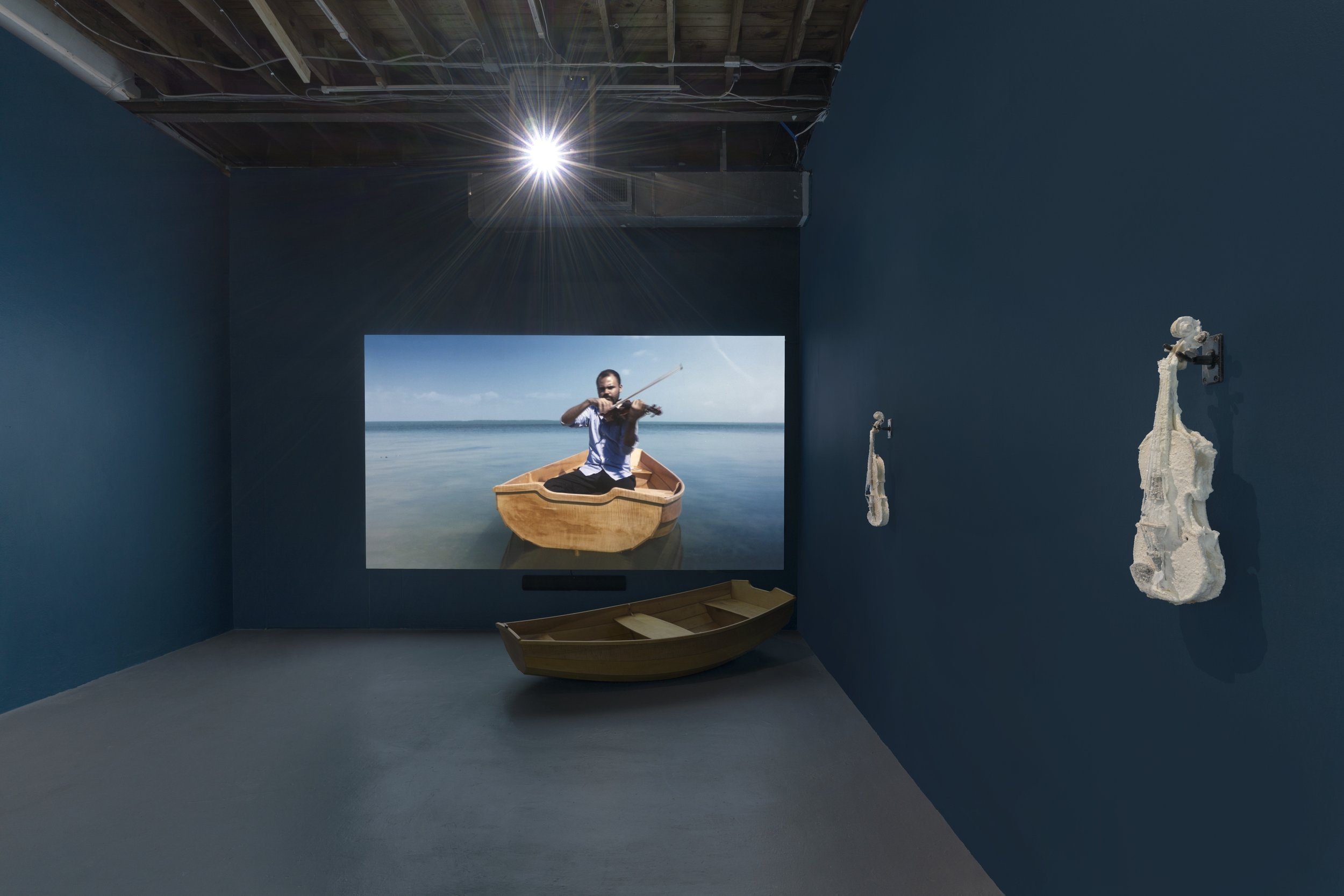
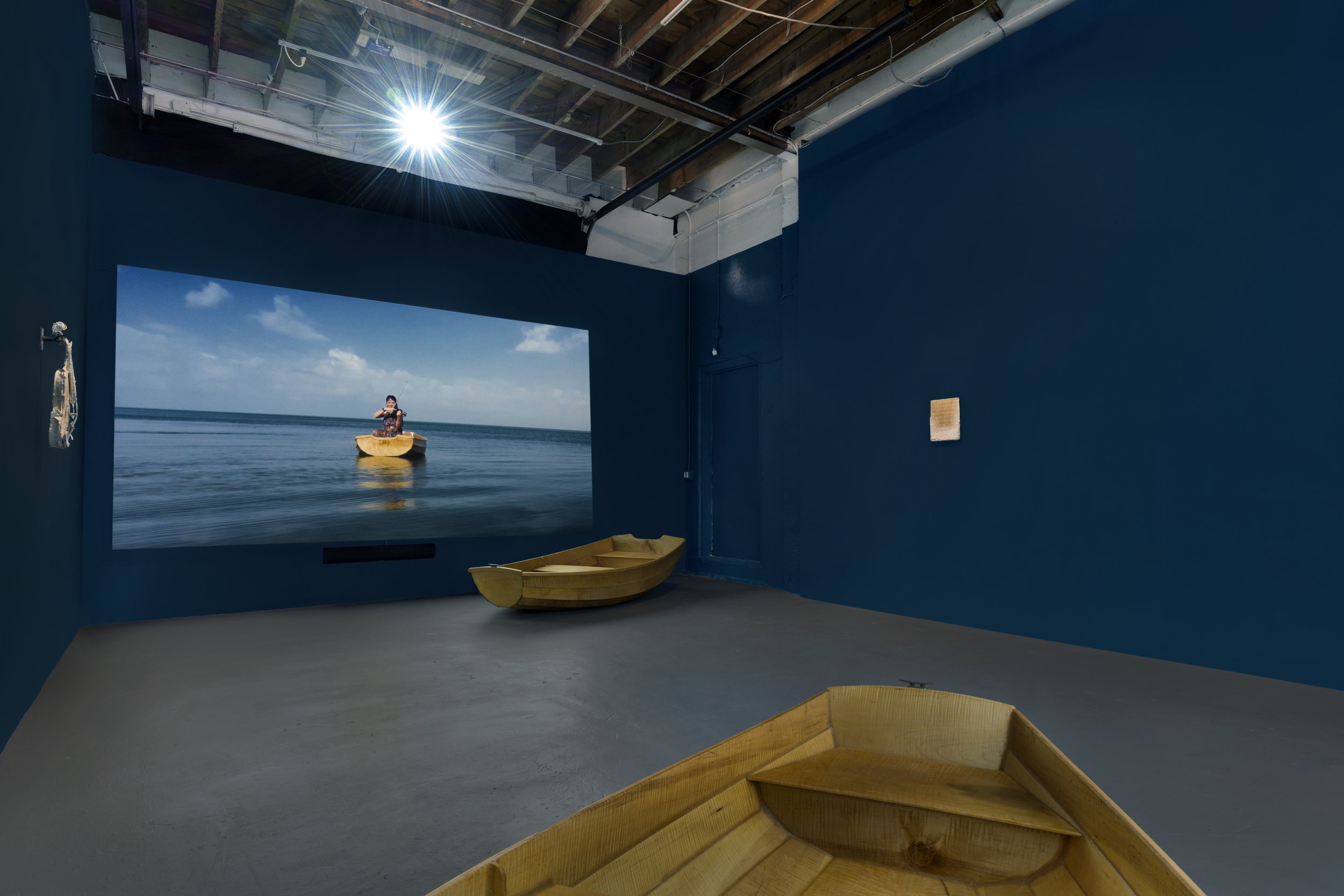
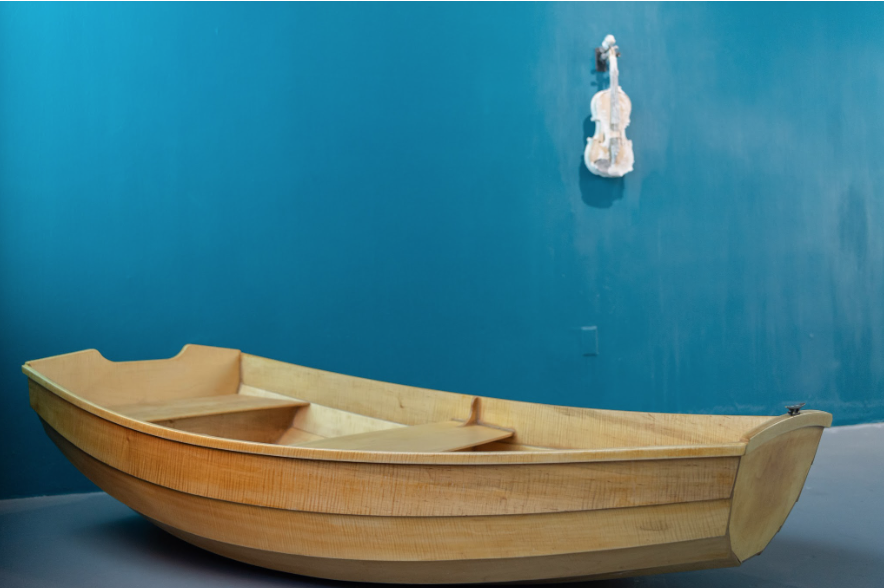
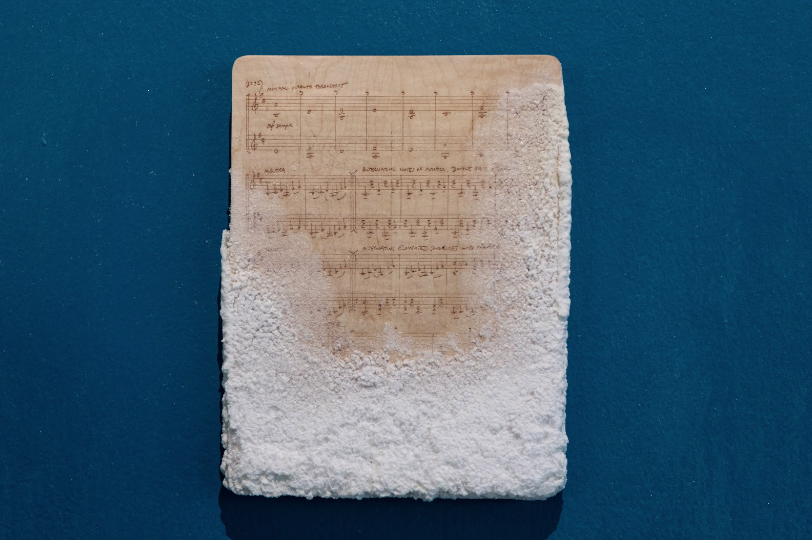
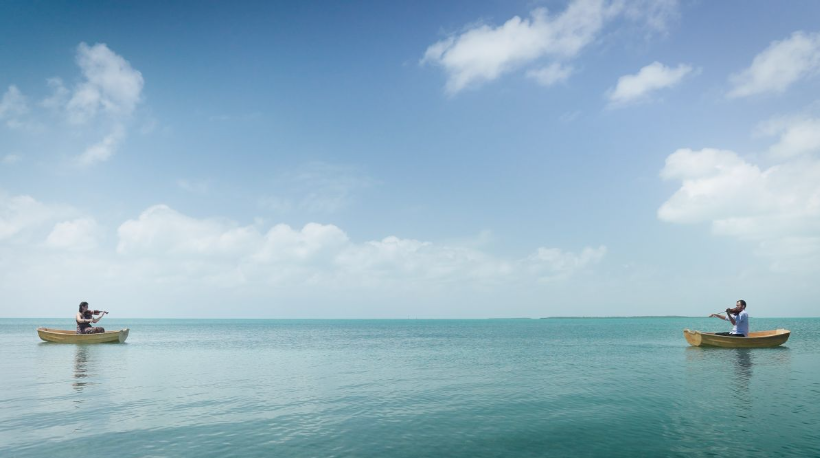
McMaster does not just approach the ideas behind his work with great depth, he also meticulously chooses the materials he portrays on screen and inside his exhibit. To construct the musicians’ rafts, McMaster chose curly maple-the same kind of wood used to make the violins they play. This shared material unifies the musicians and their vessels, further reinforcing the message of the film. Although they are inherently connected, they nevertheless slowly fall away from each other.
This focus on materials goes beyond the wood of the rafts, though. McMaster also collected an element characteristic of the ocean: salt. He boiled water from the site of the shoot (again location specificity was essential) until the salt was saturated. Then, he applied the solution to the rafts, instruments, and even sheets of music used in the film and allowed them to crystallize. These items were placed next to the screen projecting the film in the project room, allowing them to be fully scrutinized by viewers as they watched the film. Besides providing an ethereal aura to the exhibit, the crystallized objects also present the central theme of loss in a new manner. The water has been removed from the salt as it was boiled away, leaving the salt to find a new home on these objects. McMaster presents loss in an almost dizzying variety of ways, reminding us that although it is tragic, it is also inevitable and will repeat itself until the end of time.
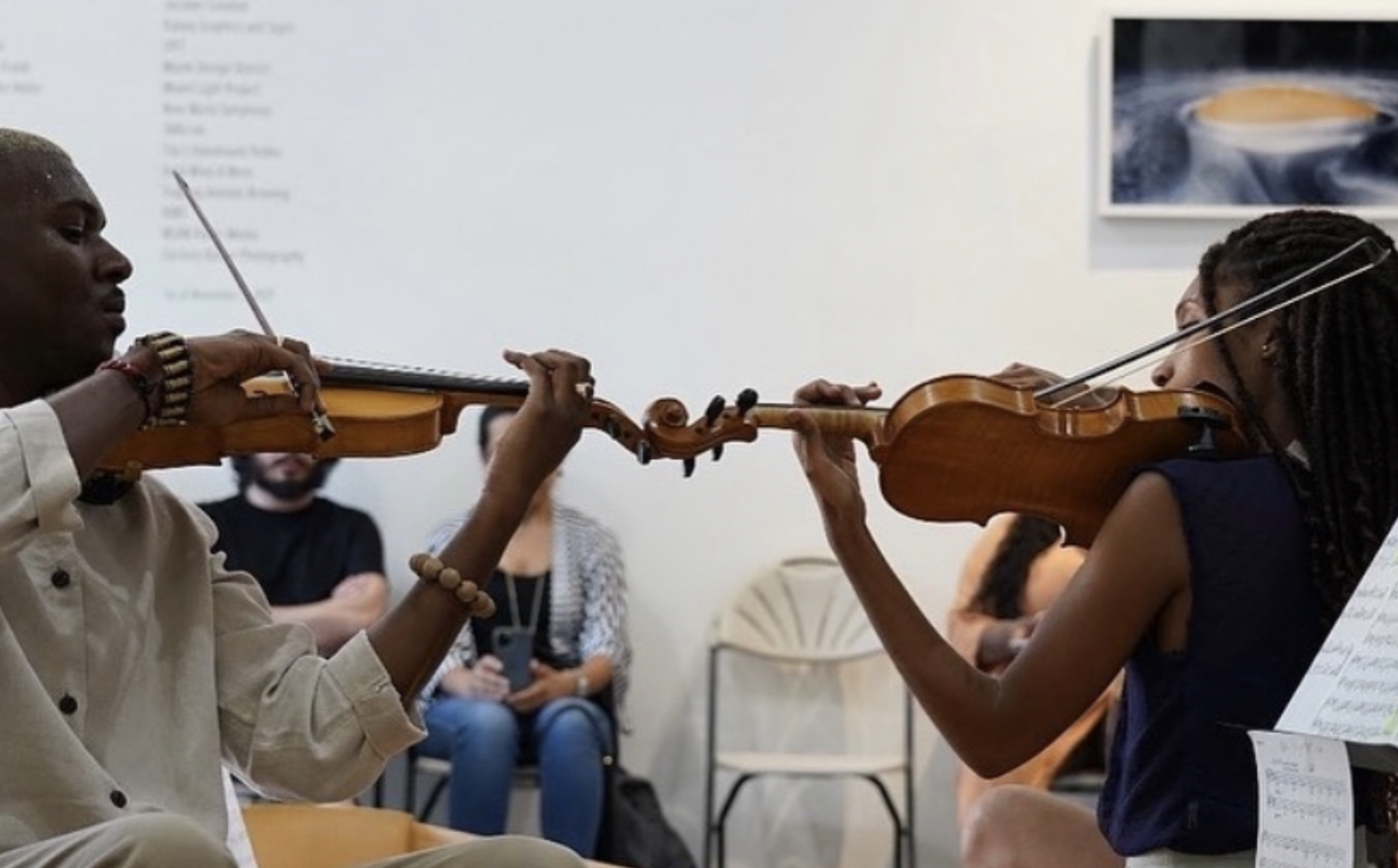
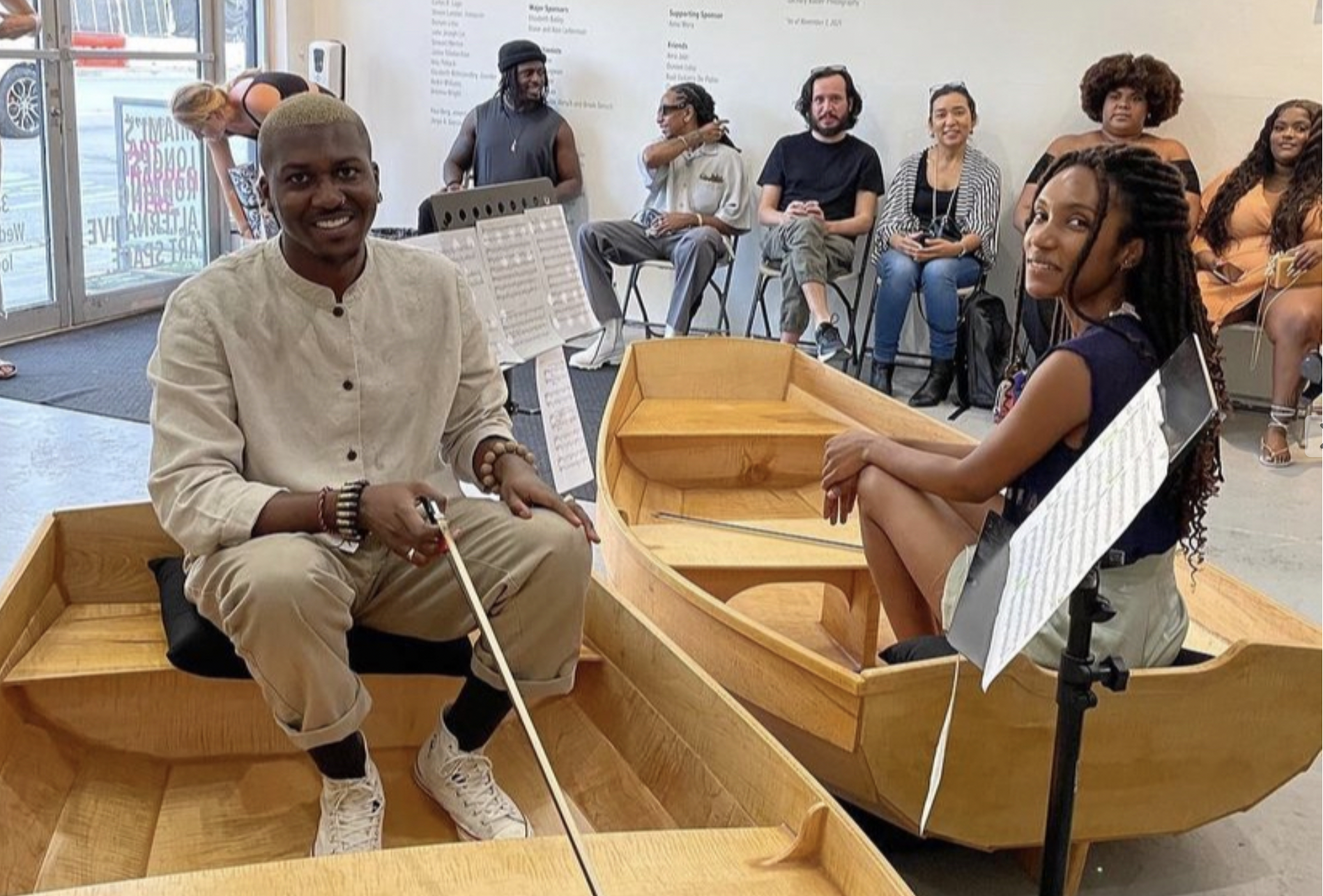
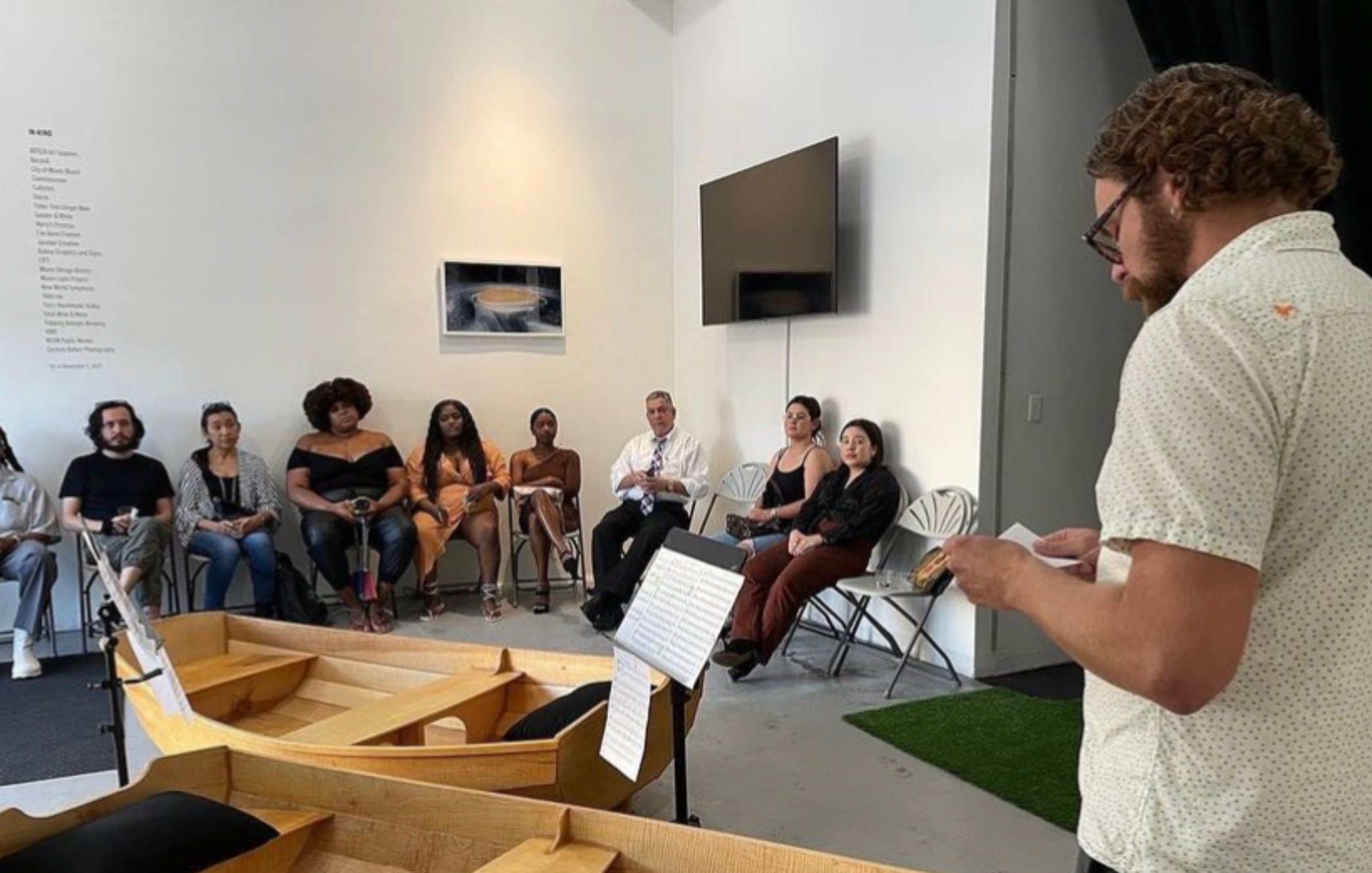
To further immerse viewers in the ambiance of his film, he invited musicians Lee Muze and Akio Gamma to perform a 12-minute violin piece live at Locust Projects to close his exhibit. Playing custom-built conjoined violins, the two violinists sat facing each other in the same boats used for the film. The piece they played was also the same as in the original video, except it was reworked by the composer Danny Clay to effectively play in reverse. This new twist on the elements McMaster previously displayed in his exhibit adds a small sense of uncertainty about possible changes in the future. However, the maintenance of these same elements cements that, despite small differences, events will always repeat themselves.
Drift was commissioned by Locust Projects and supported, in part, by the Foundation for Contemporary Arts Emergency Grant. Composition by Danny Clay. Performed by Benita Dzhurkova and João Da Fraga. Cinematography by Alex Markow. Audio Mixing by John Howell. Fabrication Assistants: Rachael Starbuck and Any Forbes. Special Thanks to Bill Haddad and Zen and Carrie Mayo.


